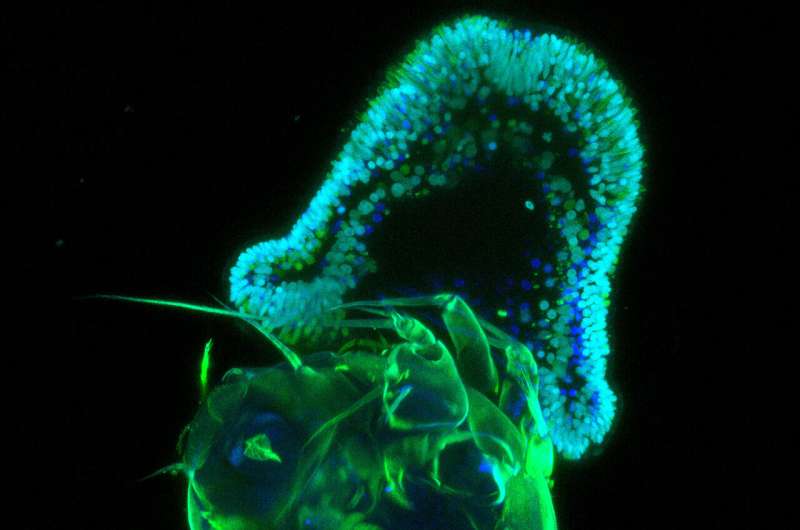Did animal evolution begin with a predatory lifestyle?
Originally published by Marietta Fuhrmann-Koch, Heidelberg University, on September 29, 2023
Pictured is an early planula larval stage of the sea anemone Aiptasia (cyan nuclei and green stinging cells) preying on a crustacean nauplius (green) of the copepod Tisbe sp. Credit: Ira Mägele and Ulrike Engel
Were the first animals predators or filter feeders like the sponges living in today's oceans? And what role did symbiosis with algae play, as with reef-building corals? Surprising findings by a research group led by Prof. Dr. Thomas W. Holstein of Heidelberg University on the development of sea anemones suggest that a predatory lifestyle molded their evolution and had a significant impact on the origin of their nervous system.
As reported in a new article published in the Proceedings of the National Academy of Sciences, the researchers were able to show that the young life stages (larvae) of the small sea anemone Aiptasia actively feed on living prey and are not dependent on algae. To capture its prey, the anemone larvae use specialized stinging cells and a simple neuronal network.



Comments
Post a Comment